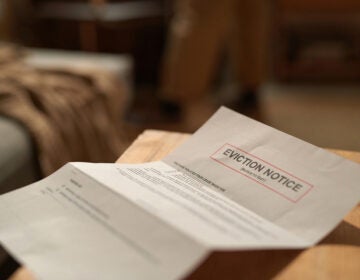Critics: Schuylkill Center needs higher level of protections
When the Schuylkill Center signed a conservation easement in December protecting 325 acres of land, it was a historical achievement: The biggest swath of private green space in the city will now be preserved forever. But for some, that isn’t enough.
The Center’s agreement with the Natural Lands Trust and the state’s Department of Conservation and Natural Resources conserves the vast majority of the organization’s land, including streams, wooded areas and the Schuylkill bike trail — which the center could have sold to developers for millions instead.
There are three levels of protection for the Schuylkill Center’s land, and 259 of the 325 acres will have the highest levels of protection, meaning they can be used only for preservation-related activities. The rest of the land has less restrictive guidelines: The center can use 34 acres, which have mid-level protections, for agriculture; and 31 additional acres, which have the fewest protections, for buildings and barns.
Those last 65 acres have thrown a small group of conservationists into a tizzy.
Christina Kobland, who runs the landscaping company Native Return, argues that the organization should have placed all of its acres under the highest levels of protection because, she claims, anything else is detrimental to wildlife on the site, including rare species like the blue-winged warbler.
“Sixty-five acres is a potentially huge amount of wildlife habitat to convert to agriculture and for structures,” says Kobland. “Conservation easements … are only as good as what they allow.”
As a former board member of the Schuylkill Center, Kobland says she’s been advocating for more stringent protections for years.
“I was on the [board] when the easement process began,” she explains. “I have consistently done everything I could to convince others to protect the entire tract for wildlife by assigning all land not already built upon the highest degree of protection.”
Kobland is an unyielding advocate for wildlife conservation in Philly, and has been surprisingly triumphant: She was one of the leading critics against a proposal for urban farming and expanded community gardens at Roxborough’s Manatawna Farm, which was squashed last year. She also fought against a planned composting facility at the Schuylkill Center, which the organization stopped pursuing in December.
So it’s not hard to imagine Kobland winning this fight, too.
A modest group, which is mostly comprised of animal-rights activists like Roxborough’s Toad Detour and the Philadelphia Advocates for the Deer, agrees with Kobland. They point out that the Center is already home to the Urban Girls Produce, and once considered housing a solar farm, so future development isn’t unlikely.
Lisa Levinson, coordinator of the Toad Detour, says, “The property is not large enough to sustain other practices, such as farming, without adversely affecting wildlife. [It’s] a safe haven for many wildlife and should be preserved.”
But Lisa Sonneborn, communications manager at the Schuylkill Center, says the easement’s critics are way off the mark. According to her, they don’t comprehend why the center opted to uphold various degrees of protection: Sonneborn says the Green Woods Charter School, as well as other educational sites, are already on the property, and thus can’t conform to the highest levels of protection.
If all of its land was under the most rigorous guidelines, says Sonneborn, the Center “would no longer be able to fulfill its mission of environmental education for children and adults.”
Critics, however, say they’re only advocating for more rigorous protections on acres that aren’t already developed.
Kobland has recently contacted the Center’s interim executive director, Karen Forbes, about expanding the Center’s protections, but hasn’t heard back. But that’s not stopping her.
“We will continue to appeal to the organization,” she says, “to protect all their land.”
WHYY is your source for fact-based, in-depth journalism and information. As a nonprofit organization, we rely on financial support from readers like you. Please give today.




